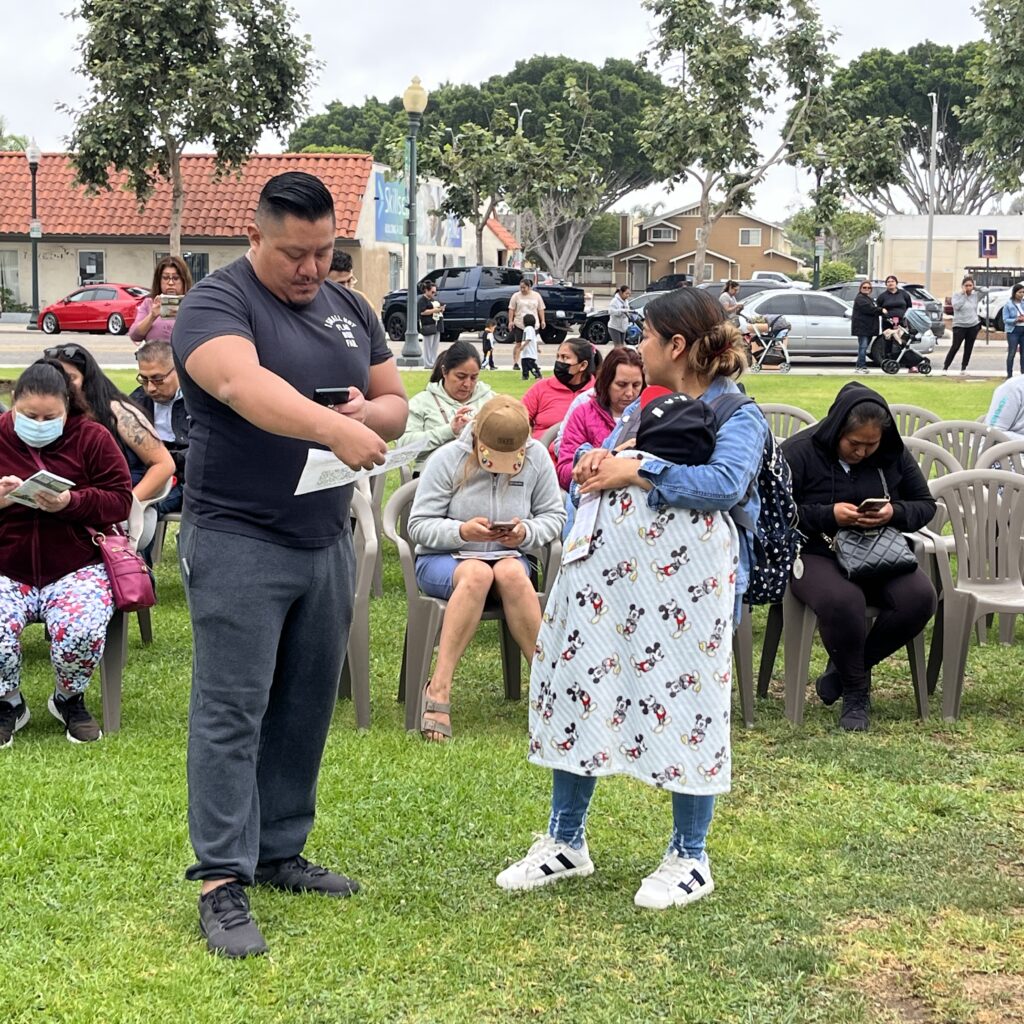
Media Contact: Matthew Bragulla, Matthew.bragulla.004@my.csun.edu, or Javier Rojas, javier.rojas@csun.edu
The ability to put nutritious food on the table is one of the most important and pressing matters that low-income families face daily.
California State University, Northridge’s Family Kitchen has been teaming up with the US Department of Agriculture’s Special Supplemental Nutrition Program for Women, Infants and Children (WIC) to enhance the amount of money that working class families can spend on fruits and vegetables at farmers markets in Ventura County.
CSUN Family and Consumer Sciences professor Dena Herman has been partnering with the Ventura County WIC program for the past three and a half years and “Family Kitchen,” — a former Master’s student research project with the mission to increase knowledge about how to shop, cook, and prepare healthy food on a budget — is one of several projects she’s led with the Ventura County WIC program.
Since its inception in 1992, the WIC Farmer’s Market Nutrition Program (FMNP) has been working with farmers markets across the country to provide increased access to fresh fruits and vegetables for families with low resources. Herman applied for a grant from the California Department of Food and Agriculture two years ago to add increase the value of the coupons that these families receive, and to help support local farmers. WIC participants received an additional $63,000 dollars split between the two years.

“The families ultimately get 30 dollars from the WIC program and 20 dollars from us to be used directly at the farmers markets to both increase family’s intakes of fruits and vegetables and also to support local farmers in growing, producing and selling their products,” Herman said.
Last summer, Family Kitchen traveled to four, Ventura County WIC-certified farmers markets where all the produce is California-grown. Herman said that the Family Kitchen project distributed all $31,500 in coupons to about 1,500 families, many of whom were migrant farm workers.
“They may actually be working in the fields producing some of the fruits and vegetables for purchase in the market,” Herman said. “But they often don’t get to eat it because they don’t have enough money to buy it.”
Family Kitchen consists of student researchers working to become clinical dietitians. Herman said that participating in field-based research at the farmers markets allows the students to directly interact with people they might end up working with later in their professions. She added that the project also allows students to build teamwork, leadership and communication skills they may not get to practice in a classroom setting.
Destiny B. Parks, the head research coordinator for Family Kitchen, called her work on the project “extremely humbling.”
“You get to see these women with a child strapped to their front, a child strapped to their back, waiting in line for two to four hours just to receive a total of $50,” Parks said. “A lot of them are Mixteco- or Spanish-speaking – we tried our best to communicate as best we can with them.”
Parks said the job included creating excel sheets to log everyone who got a coupon, communicating with the team and administering surveys to the families, many of which had the answers translated for them.
Alejandra Dorantes, a student coordinator and translator, said it was sometimes difficult translating to the Mixteco people, whose language is purely oral. She said she would sometimes have to use hand gestures to make sure they completely understood the questions.
“It was challenging,” Dorantes said, “but it was a great experience because it allowed us to see the community and it exposed us to different people and different situations that we really don’t see.”
Sometimes, Herman said, more than 300 people would stand in a line that wrapped around the block, patiently waiting for the coupons. Many would remain in line even after the market had closed, and the student coordinators would not leave until everyone was served.
Esperanza Huerta, a student coordinator and translator, said those waiting in line were still grateful, even after the long wait.
“Even if they had been waiting there for hours, even if we had to repeat some of the questions, they were just incredibly grateful to get the coupons,” she said.
Daniel Jiroch, another student coordinator, called his work with Family Kitchen “a very rewarding experience,” as well as a great learning opportunity for nutrition students like him.
“I think if you’re going to work as a dietician, it gets you acquainted with the resources your clients may have access to. Sometimes you must make good determinations about if a client has adequate access to food, and maybe you can get them plugged into some of these programs,” Jiroch said. “It takes it from words in a book to ‘this is what they’re experiencing.’”




Comments are closed.